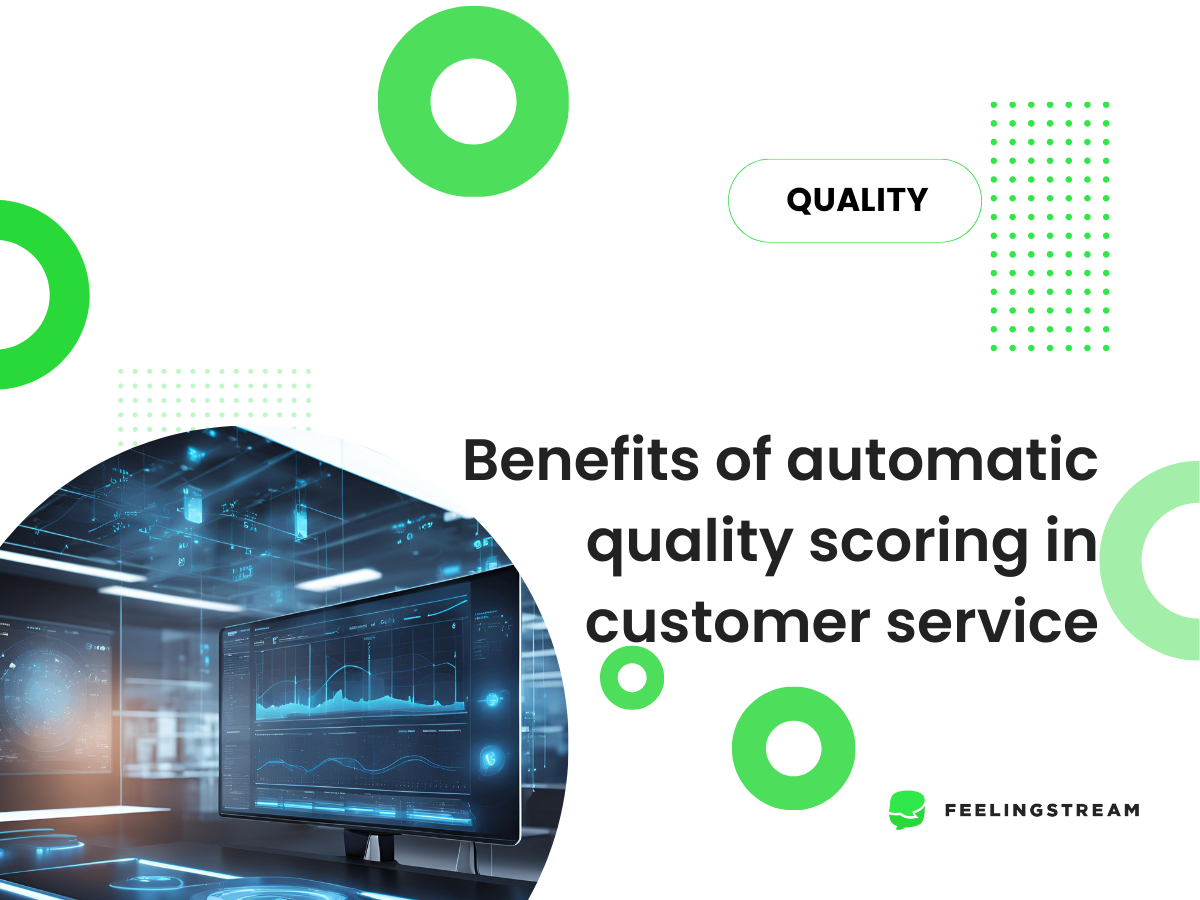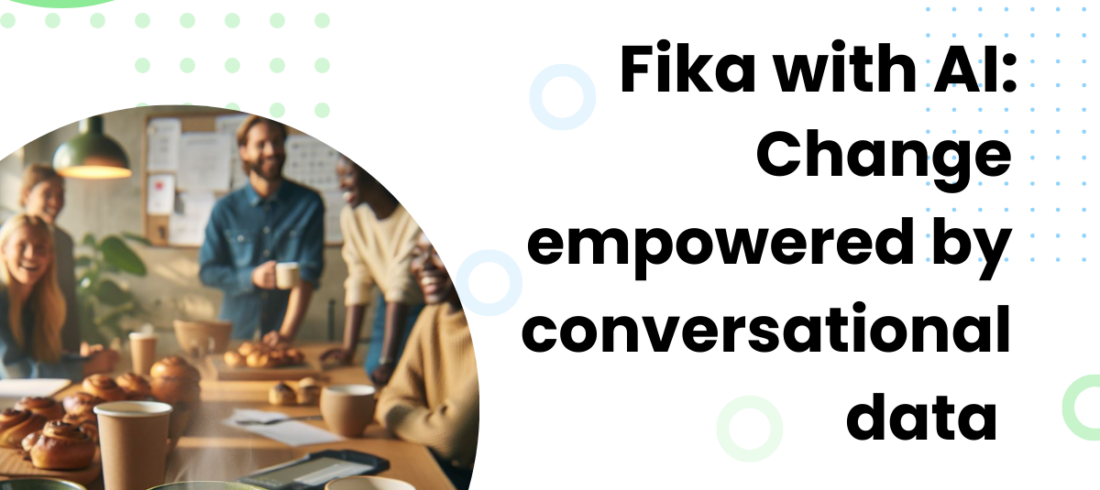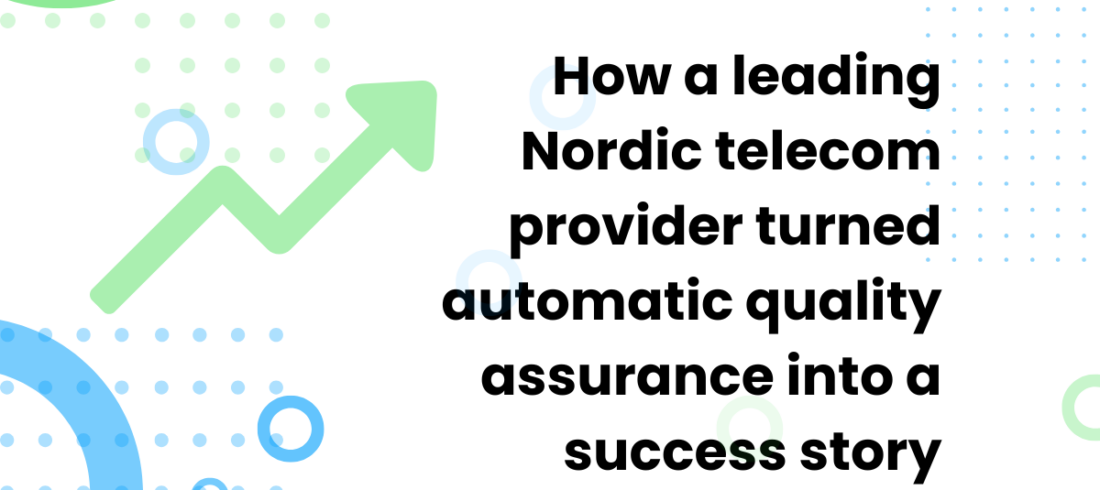Customer service quality has always been a core part of any business, big or small, interacting with customers on a daily basis. Customers want the service to be efficient and friendly. The main focus though will always be that the customer needs their issue to be solved. Companies want to continuously ensure customer satisfaction, and through that, customer retention.
With this in mind, one innovative way to improve the process of customer service quality assessment is the implementation of automatic quality scoring systems. This can mean leveraging advanced technologies such as AI and machine learning. By automating the quality scoring process, companies gain valuable insights and improve the consistency across the service provided.
In this blog post, we will explore the benefits of using automatic quality scoring in customer service. We will also share how it can transform operations in a company, ultimately elevating customer experience.
Scalability – visibility of the larger picture
The traditional approach of analysing customer interactions used to be a lot of manual work. Quality Coaches, Process Managers, and Team Leads would randomly select a handful of conversations to investigate from the quality assessment point of view. Unfortunately, this approach does not deliver a real overview as the findings are not always quantifiable.

Businesses can gain valuable insights into common issues with processes, products, information provided, self-service channels, and more by analysing large volumes of interactions. By looking at the larger picture, we can clearly evaluate customer sentiment on the different topics. Next, we can use this to pinpoint areas of improvement. As a side-benefit, this frees up the most expensive resource – time. The human evaluators can focus more on complex tasks that require a human touch, thereby helping to optimise resource allocation.
Consistency – standardised evaluations
To assess the quality of service provided to the customers, companies create a list of questions, conditions, or criteria to score customer conversations. While this list can be uniform across the company, humans, with their human experiences, sentiments, and bias, complete the scoring task. Asking three individuals to score one interaction will give you three different scores.
There is hardly any better solution for standardisation of assessments than using automatic quality scoring. AI-driven systems combined with machine learning can assess thousands of customer interactions. The system will score the conversations on the same set of rules. This will give you an overview of how the quality of service is across the team, department, or whole company.
Listening in on a live call to conduct quality assessment puts added pressure on Agents and leaves room for human bias. Side-by-side listening will impact the Agent’s behaviour during the interaction. Automatic quality scoring ensures that all scores given will be fair, unbiased, and standardised.
Efficiency – targeted training programs
Thanks to the abovementioned benefits of scalability and consistency, companies can pinpoint the areas of improvement quicker and with excellent precision. Combining automatic quality scores with metadata or topics attached to the conversations, it becomes clearly visible which products, services, or processes the customers need more help with and where Agents might be struggling to fully assist the customers with their issues.
Through this new knowledge, companies can start to plan their training programs. Detecting the reason why an issue remained unsolved can lead to better prioritisation of actions and solutions.
Do Agents need more training in mapping the customer needs by asking open ended questions?
Are they in need for better technical guides to rely on when assisting customers over the phone?
Should they focus more on explaining the follow-up actions to the customer?
Automatic quality scoring helps answer all these questions, and more.
Customer loyalty – improved customer experience
It comes as no surprise that customer loyalty is directly connected to customer satisfaction.

According to research by Salesforce, 88% percent of customers say the experience a company provides is as important as its products or services.
Setting high quality customer service conversations as a standard and as a positive example provides Agents with better insight into what is expected of them. When Agents know that their great work is appreciated and leads to wins for both them and the company, they feel motivated to do their best to represent the company in the most positive way possible. Praising Agents for their successes and helping them where needed helps them solve issues quicker and leads to happier, more loyal customers.
Automatic quality scoring – the way of the present, not the future
All in all, the implementation of automatic quality scoring in customer service is a game changer. By enhancing scalability, it provides a comprehensive view of performance across the board.
- Standardising evaluations, promoting fair and objective assessments helps achieve consistency.
- Targeted training programs, which directly assess areas needing improvement, help boost efficiency.
- Ultimately, these benefits lead to heightened customer satisfaction and retention.
Automatic quality scoring is not just about keeping up with the fast-paced technological advancements in today’s world. It is about committing to continuous improvement in customer service to create a more efficient, consistent, and customer-centric service environment.
Do you want to find out what Feelingstream offers as a solution for automatic quality assessment? Reach out here.




